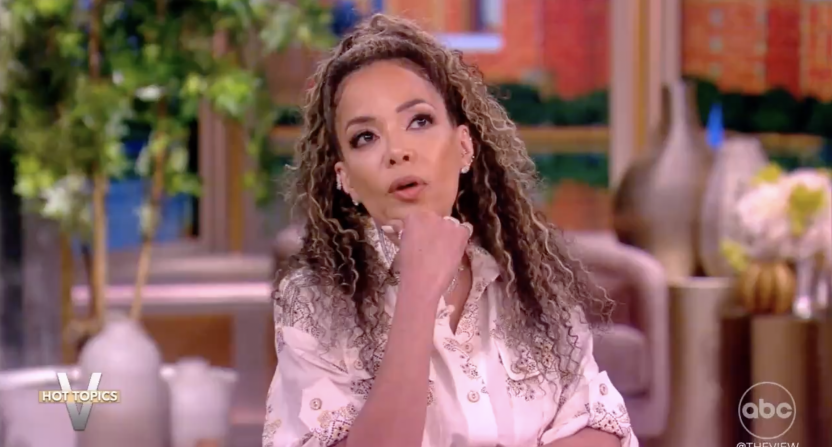Earlier this week, we saw LeBron James speak from experience, calling out “the haters,” who are rooting against Indiana Fever rookie sensation Caitlin Clark. That also saw Charles Barkley call out women, in particular, but his comments were aimed toward players in the WNBA, while James were directed toward non-players.
The conversation surrounding Clark has ignited discussions about gender and race in basketball and all sports. And that saw Sunny Hostin of The View bypass James’ comments while offering her own perspective on the ongoing debate sparked by Clark and its broader implications.
Weighing in on the potential impact of Clark’s rise, Hostin shared her personal experience:
“I’ve been a basketball fan since I can remember,” Hostin said. “I played basketball with my dad in Harlem when I was five years old. I remember loving the game and the game, not necessarily loving women back — at all. The WNBA started in 1996; the first games were played in 1997. It’s 2024, and we’re just really now talking about it. And so, if Caitlin Clark is the vehicle that will bring this sport that I have loved so much and so long to little five-year-old girls playing in Harlem — I say, ‘Yes. Bravo.’ I have no problem with that.
“With that being said, I do think that there is a thing called pretty privilege. There is a thing called white privilege. There is a thing called tall privilege. And we have to acknowledge that. Part of it is about race because if you think about the Brittney Griners of the world, why did she have to go to play in Russia? This is part of my point. Caitlin Clark is bringing this money and these sponsorships — we hope — into the league, and other players will benefit from it.
“But I do think she is more relatable to more people because she’s white because she’s attractive. And unfortunately, there still is that stigma against the LGBTQ+ community. 70% of the WNBA is Black. A third of the players are in the LGBTQ+ community. And we have to do something about that stigma in this country. I think that people have a problem with basketball-playing women who are lesbians. Who cares? They’re great athletes.”
So, while Hostin recognizes that Clark can be used as a vehicle, The View co-host also sees a potential downside to Clark being the face of the league. While Clark’s marketability might bring much-needed financial resources to the WNBA, Hostin ultimately raises the question of whether his background plays a role in her success.
The takeaway from Hostin’s argument here is that Clark’s rise is a double-edged sword. She sees it as a boon for the WNBA but also exposes existing issues of representation and societal biases. Whether that leads to a more inclusive and equitable future for the WNBA and women’s sports remains to be seen.
[The View]
